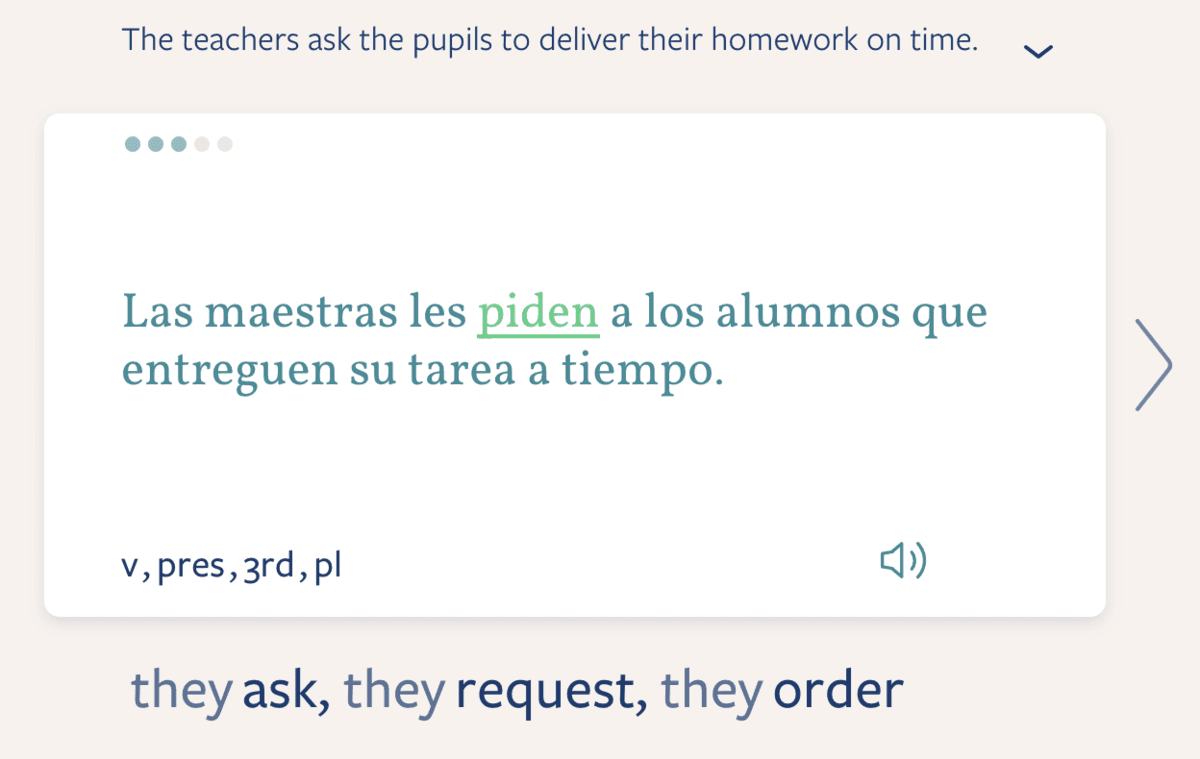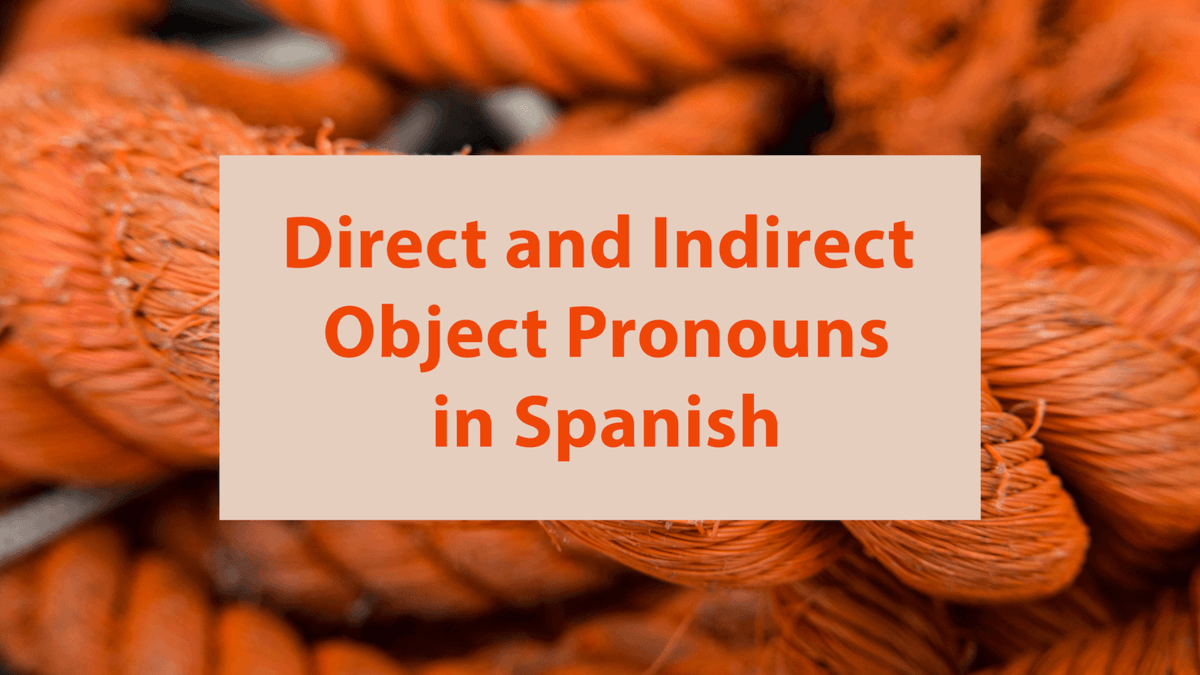One of our users, Jonathan, asks:
I just came across a card where I really don’t understand at all why an indirect object pronoun is used instead of a direct one.

Why do you use “les” here? For me, the pupil are clearly the direct object here. Anyway, why do you need the pronoun at all?
The linguistic phenomenon you have mentioned is called “double dative” and is a common one in Spanish:
- Repetition of the indirect object pronoun is necessary unless a previous reference has been established:
“Le daré los regalos a mi mejor amigo la semana que viene.”
“¡Dale el juguete a tu hermana!” - Using the indirect object pronoun is mandatory for the 3rd person, unless the indirect object is a proper name:
“Le entregué los deberes al profesor.” –> “Entregué los deberes a la señora Rosa.”
Regaring your question, why you would use an indirect instead of a direct object, let’s take a look.
The prepositional phrase a los alumnos is the indirect object in this sentence because it corresponds to the ‘beneficiary’ or ‘injured’ by the action of the subject (las maestras). The direct object is the subordinate sentence que entreguen su tarea a tiempo.
We can see this clearly if we replace both objects by their corresponding pronouns:
“Ellas les (IO) piden (a ellos) (IO, double dative) eso/ello (DO)” –> “Ellas se (IO) lo (DO) piden”.
Here’s a table illustrating how third person indirect object pronouns differ from their direct pronoun counterparts.
| English Object Pronoun | Spanish Direct Object Pronoun | Spanish Indirect Object Pronoun |
|---|---|---|
| me | me | me |
| you (informal) | te | te |
| he, she, you (formal), them | lo (m.), la (f.) | le, se (when there’s another third person pronoun in the sentence) |
| us | nos | nos |
| you (plural / informal / Spain) | os | os |
| them (plural), you (plural / formal / Latin America) | los, las | les, se (when there’s another third person pronoun in the sentence) |
To learn more, read our complete guide to different types of Pronouns in Spanish, or check out the Real Academia’s prescription here. And remember: you can learn Spanish online with Lingvist and improve your vocabulary in as little as 10 minutes per day.
¡Feliz aprendizaje!





